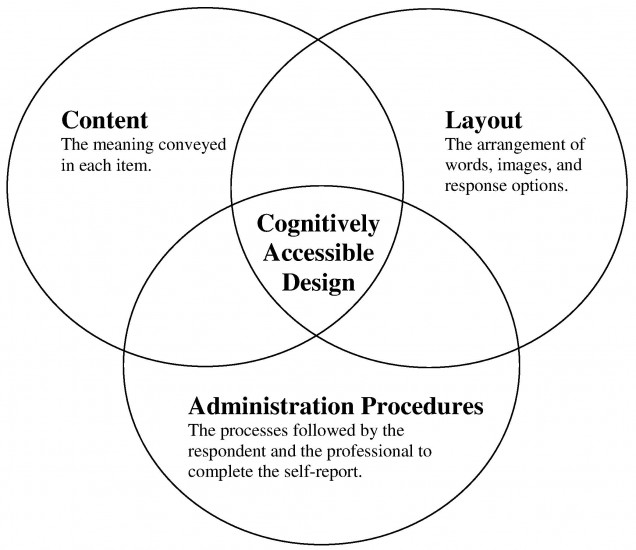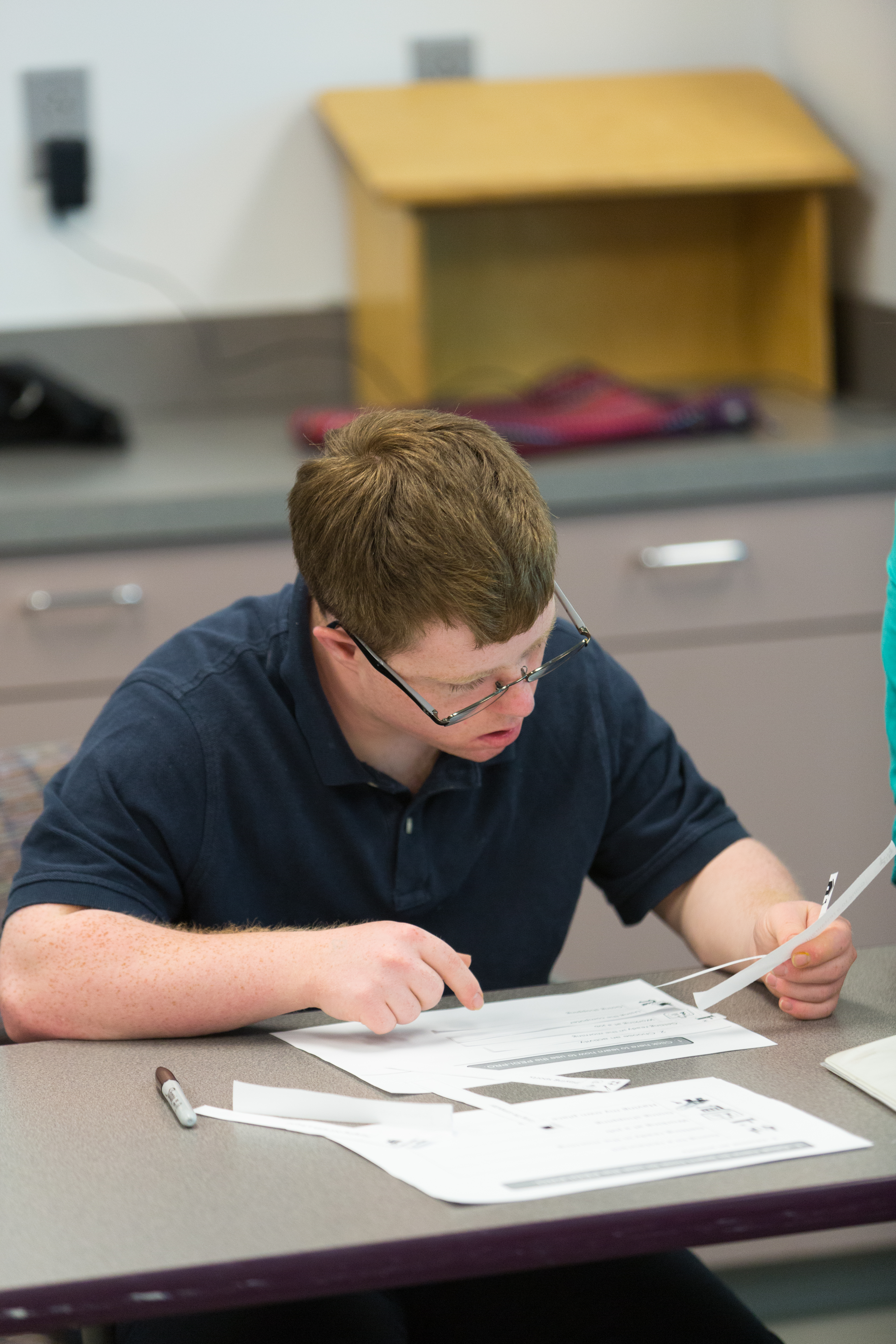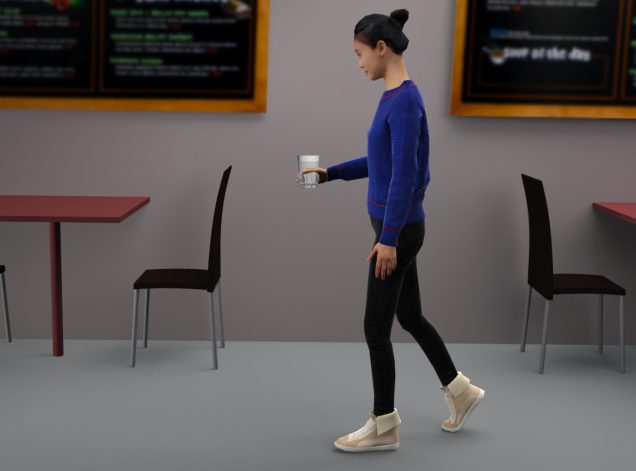How does the PEDI-PRO work?
The cognitive demands required for valid self-reports pose a challenge to researchers and clinicians working with youth with DD. Youth must comprehend the question, relate the question to his or her everyday life, evaluate his or her own performance, and determine the optimal match between self- evaluation and the response options. This process requires youth to execute numerous cognitive processes involving attention, working memory, long term memory, and judgement. Technology is available that could support cognitive processes and allow youth with DD to self- report their functional abilities in a reliable manner.
The PEDI-PRO harnesses the power of technology and integrates features from three components of assessment design that are optimized for cognitive accessibility: the content of each question, the layout and format of the user interface, and administration procedures. For example, the PEDI-PRO uses realistic 3D images depicting each question, provides interactive examples that teach youth how to understand and use the response option buttons, and incorporates text- to- speech to support reading.

When completing the PEDI-PRO, youth answer questions about their motor, cognitive, and communication abilities when doing familiar and important everyday activities like “Going to a restaurant”, “Getting ready in the morning”, and “Working at a job”. Using familiar everyday life situations to assess functional tasks provides contextual cues that may enhance comprehension and recall and improve the validity of PROs for youth with developmental disabilities.
See some example images from PEDI-PRO items below:
Wash my hands.
Carry a full drink to the table.
Tell the waiter or cashier what I want to eat.



